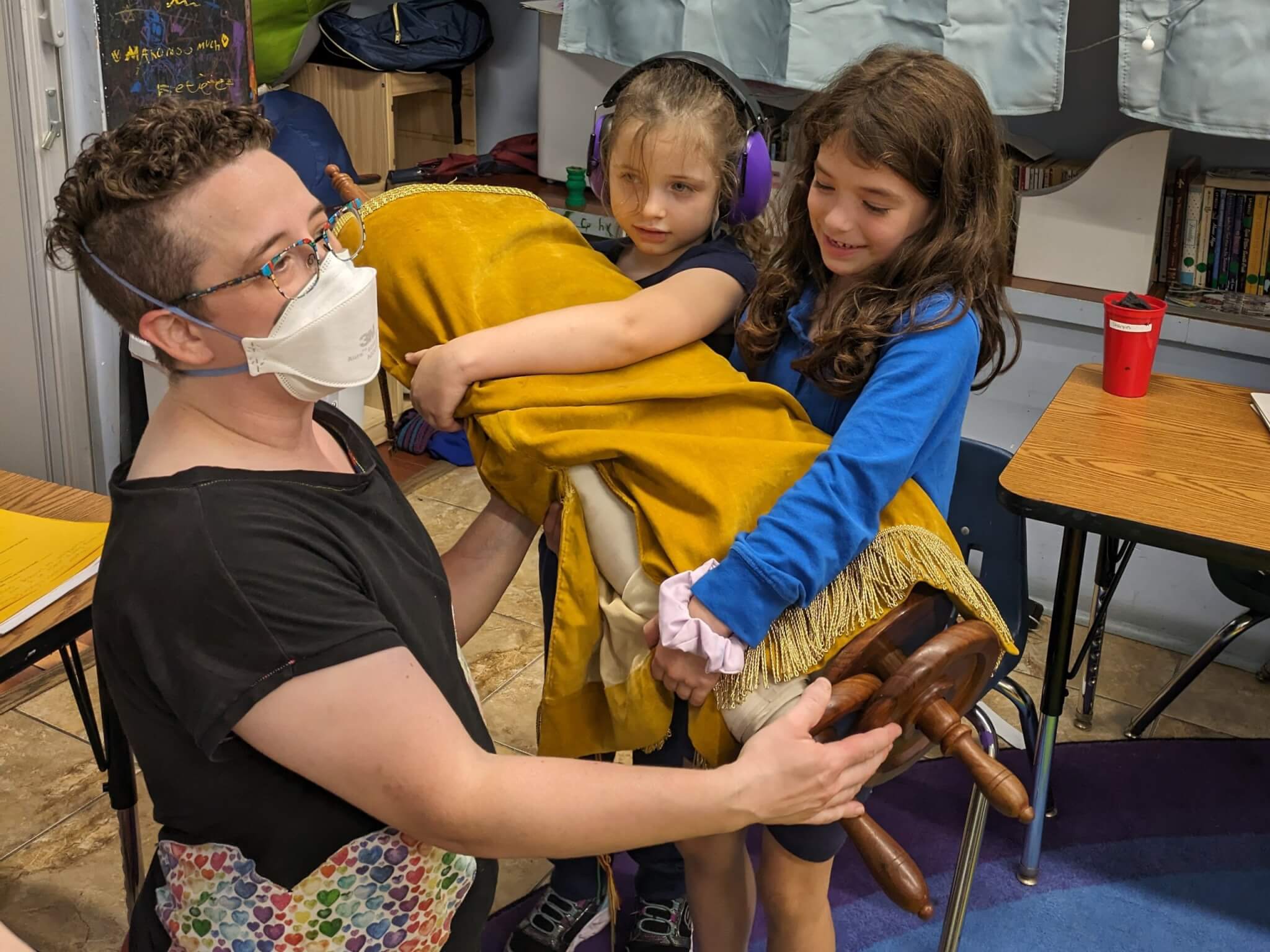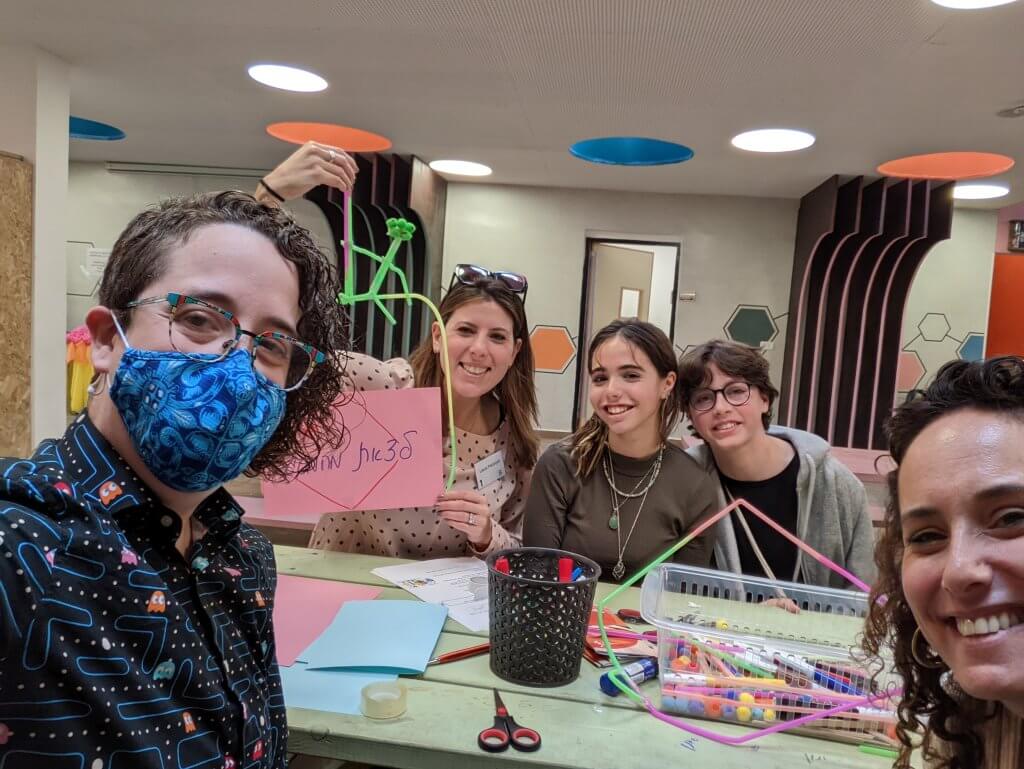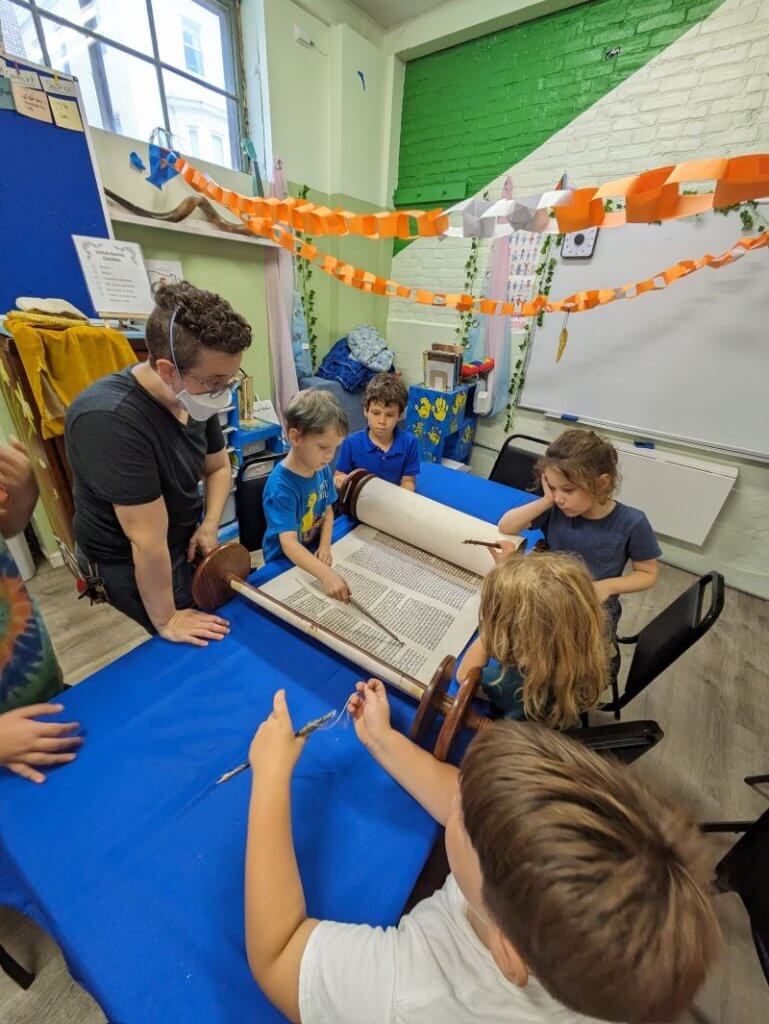
We had such an incredibly joyful time preparing for Simchat Torah last week at Makom Community. We were dancing, singing, and asking questions about Torah across ages and schools. It was a beautiful snapshot of how we engage with Torah at Makom.
And then over the weekend we got such deeply upsetting news about war in Israel. As parents, there are many things that are challenging for us to both process for ourselves and discuss with our children. I want to offer some support for Makom Community parents as you process the destruction we’re seeing in Israel and find our own ways to talk to our children about war and devastation.
Here’s what you can expect we’ll be talking about with kids at Makom:
- We’ll be sharing a one sentence headline that there is war happening in Israel.
- We’ll be focusing on sending our deepest wishes for Shalom (peace) to Israel when we gather in Tefilah: Prayer, Music, and Movement.
- We’ll be validating kids’ feelings about what they’re hearing.
- For kids in grades K-4, we’ll be inviting them to talk through any questions they have individually with me.
- For kids grade 5-7 (Anafim), we’ll be spending Tefilah workshop time holding space for them to talk about this as long or short as they need to.
How do we talk about war through our pedagogy of Jewish Placemaking?
- Use fewer words. No really, fewer. It could be as simple as sharing, “You might hear about there being a war happening in Israel. Let me know if you have any questions.” Choose those words carefully. It’s okay not to say “kidnapped” or “rockets” when you’re talking with younger kids. They may not need details on the Iron Dome or where the rockets came from, unless they ask about it.
- When kids ask questions, answer the question they asked as literally as possible. When my 5 year old kiddo asked me, “What’s a war?” I told them, “It’s when people hurt each other because they think it will solve problems.” Both my kids reflected on how absurd that sounded!
- It’s okay that you’re having feelings about this! In our community, I imagine lots of us are having a whole array of feelings about Israel and Palestine right now. It’s powerful to share with kids that we’re having feelings, and it’s also worthwhile to remind them that the feelings of adults are never their responsibility to address. That could sound like this:I’m worried about friends I know in Israel living through a war. And I will still always be your safe grownup to talk to about anything. My feelings are never your job to fix.
- Sit in the quiet. After you share something like “There is war happening in Israel.” Wait for them to respond with feelings or questions. Or just follow the kids’ lead when they are ready to go back to watching TV or working on their art projects. They’ll come back to you with questions as they are ready over the days and weeks ahead.
- Parents of middle school students: You may want to additionally ask them what they’re hearing at school and offer to validate their feelings or help form responses if they want to. That could sound like this:
Are you hearing anything at school from kids or teachers about the war in Israel?
[They share.]
Oh. That sounds tricky. How is that sitting with you? Did you respond? Do you want to if it comes up again? I’m always here to chat with you about whatever is on your mind. And we can arrange time to talk to Beverly, too, if that’s helpful.
Finally, this is a resource from Dr. Sivan Zakai from Hebrew Union College on how to have conversations in age appropriate ways with kids about Israel.
As we enter the final weeks of our unit on “We are Creation,” we will be reminding our learners that all people are created in God’s image, that Makom’s Torah teaches us that all our feelings are valid, that we trust and believe each other, and that turning towards community during hard times is where we find strength.
Praying for Shalom – peace,
Beverly Socher-Lerner
Executive Director & Founder

My visit to Israel last December as part of the Mandel Educational Leadership Cohort, visiting a project-based learning school in Jerusalem.

